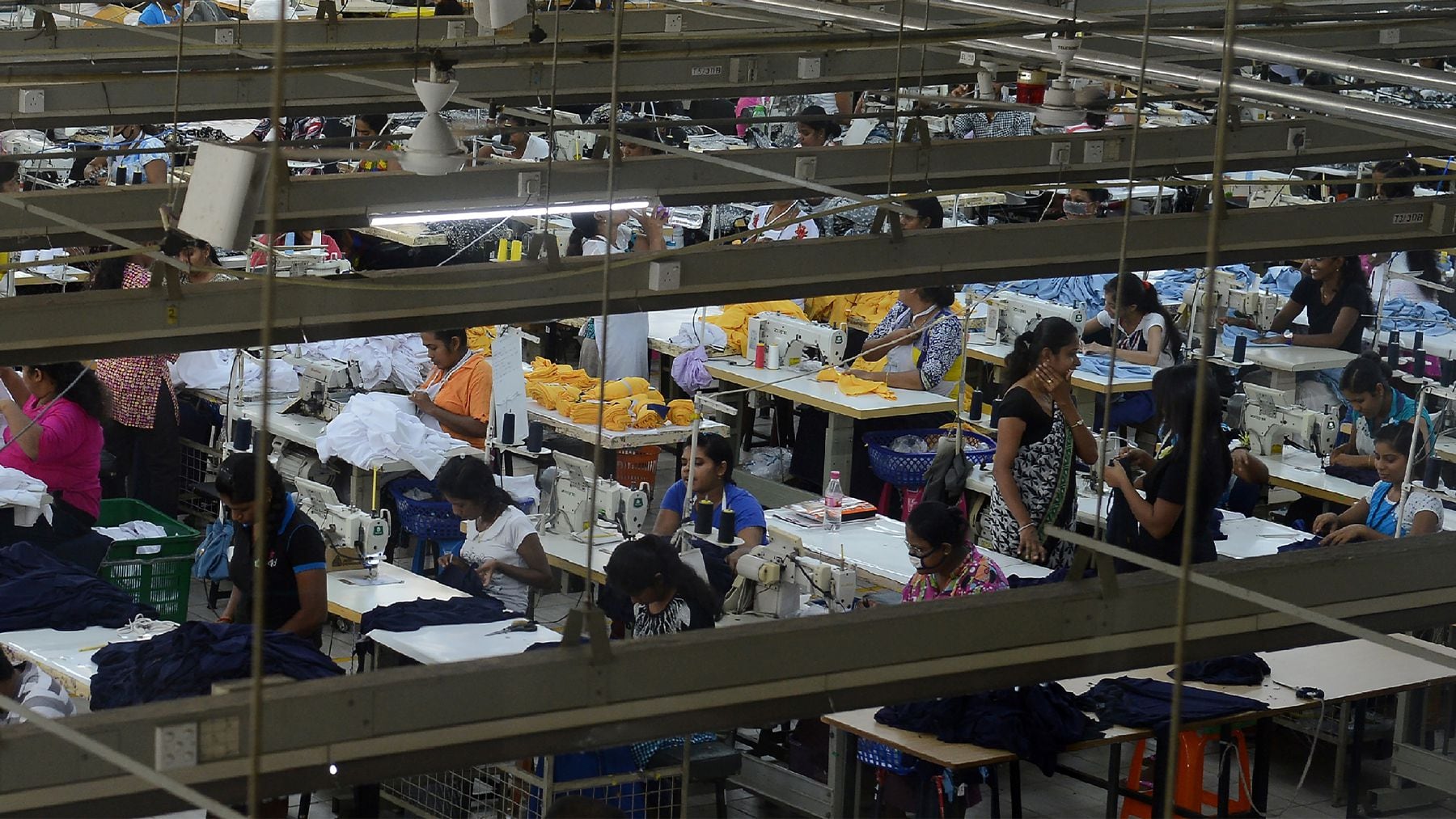Worker Unions Take Nike to Task With OECD Complaint
When the pandemic hit in 2020, brands cancelled their orders with suppliers en masse, sending the global apparel supply chain into free fall. It was workers in garment factories who bore the brunt of this crisis, with many losing their livelihoods without a severance payout. Those who retained their roles often went months without the full wages and overtime payments they were owed. With workers left without a social or economic safety net, the systemic inequalities of the fashion industry were laid bare.
But as corporations bounced back to record revenues, they failed to settle the tab for the millions of dollars of wages still owed to workers in their supply chains.
Now, workers are taking one of the world’s biggest clothing companies to task.
A group of 20 garment-sector unions from Cambodia, India, Indonesia, Pakistan and Sri Lanka, along with two labour-rights organisations, the Asia Floor Wage Alliance and Global Labor Justice-International Labor Rights Forum, submitted a complaint against Nike on Monday to the Organisation for Economic Co-operation and Development (OECD). The complaint alleges the sportswear giant violated the OECD Guidelines for Multinational Enterprises, a set of recommendations on responsible business practices endorsed by OECD member governments.
“We are not talking about a little bit shaved off here and there, [but] literally months of wage theft,” said Anannya Bhattacharjee, international coordinator for the Asia Floor Wage Alliance, during a press briefing on Tuesday.
The authors of the complaint allege that Asian garment workers in Nike’s supply chain faced impacts on their rights, such as the right to just and favourable working conditions, social security and protection from gender discrimination, as defined by international human rights law. They also allege that Nike did not engage with unions representing workers in its supply chains, despite their requests for dialogue and the recommendations established in the OECD’s guidelines.
“We’re exposing how US multinationals used their supply chains and the Covid crisis to transfer wealth from Asian workers and communities to wealthy companies and investors,” said JJ Rosenbaum, executive director ofGlobal Labor Justice – International Labor Rights Forum, during the press briefing.
Nike did not immediately respond to BoF’s request for comment. The US National Contact Point for the OECD Guidelines did not respond to BoF’s request for confirmation it received the complaint.
The OECD’s guidelines are not legally binding, but this complaint, if approved, would result in Nike being invited to a mediated dialogue with the unions. Since 2001, a total of 35 other OECD complaints have been filed against garment and textile companies, according to a database compiled by OECD Watch, a global network of civil-society groups. The vast majority have been rejected or remain unresolved, according to the database.
It’s the latest example of labour rights advocates aiming to hold fashion companies accountable for wage violations in their supply chains in the wake of the pandemic, including legal action and public campaigns.
The filing against Nike is part of a wider campaign from labour groups which seeks to highlight still-uncompensated wage theft across the global garment industry, as well as calling out the several fashion corporations that have launched share buyback schemes, including Levi’s, VF Corporation and Nike. According to a report by the Asia Floor Wage Alliance and Global Labor Justice-International Labor Rights Forum, Nike could have paid back wages owed to workers nearly 2,000 times over with the money it spent on stock buybacks. (VF Corp. referred BoF to a Nov. 17 letter addressed to the Asia Floor Wage Alliance, in which it said it was committed to respecting OECD Guidelines for Multinational Enterprises and outlined steps it had taken to engage with suppliers and honour payments at the onset of the pandemic. Levi’s said its code of conduct requires all suppliers meet their financial obligations to workers on time, and any failures to do so are investigated and addressed as soon as possible.)
“Every dollar spent on buybacks and dividends is one dollar that is not spent on worker wages or investments in safety or other productivity investments,” said Sarah Anderson, global economy project director at the Washington, D.C.,-based Institute for Policy Studies.
Labour rights advocates see this complaint as a mechanism for not only demanding compensation for unpaid wages but also challenging a worrying precedent for wage theft and worker exploitation amid a worsening economic climate and inflationary pressures.
“The pandemic practices have set a new normal globally,” said Bhattacharjee. “This new normal is something we have to examine. It is dangerous and it can shape how the global recession that is predicted will be handled and what it will do to garment workers.
“It’s almost … as if brand companies thought they got a perennial ‘get-out-of-jail-free card,’” she added.
For more BoF sustainability coverage, sign up now for our Weekly Sustainability Briefing by Sarah Kent.

:quality(70)/cloudfront-eu-central-1.images.arcpublishing.com/businessoffashion/DC4T4MJOHVBBLL5AROQDRFS46M.jpg)




